
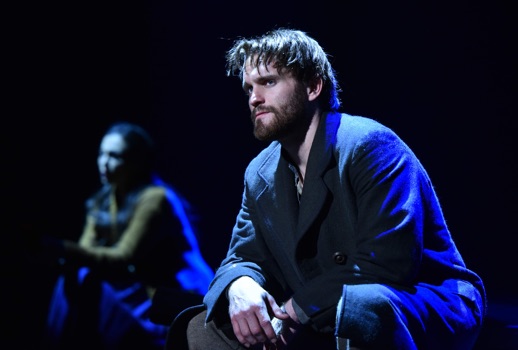
Pictures show that Mr. Ott is handsome, but they don’t capture his charisma onstage, or the floating beauty of his high baritone, or his ability to be—not just to act but also to live on stage. He is substituting for Nathan Gunn, for whom the opera’s leading role, W.P. Inman, was written and who was called away from this run by a family emergency. Trained at The Curtis Institute where the composer Jennifer Higdon teaches, Mr. Ott had much to do with the development of the work, including singing a number of early readings of the score. That obviously gave him authority in Ms. Higdon’s style and perhaps the stamina for this immense part.
He was able to make every word clear, despite Higdon’s often-clumsy vocal writing, hitting the upper part of the voices hard for quasi-parlando effects. (Isabel Leonard as Ada, the object of Inman’s love, had to struggle in the counterintuitive tessitura of her part, which severely stretched her light mezzo.)
Above all Mr. Ott played the complexity of a recognizable human being, not a “type” as all the other characters were forced to be—he balanced his character’s desperation, toughness, violence with vulnerability and pathos. He embodied the longing of the character for safety, home, and love with heartbreaking sincerity. Whether he has the vocal heft for a huge house such as the Met will remain to be seen, but he gave a stunning performance.
Yet even if everybody else had been on the same level the work would have capsized. Like the ghastly Oscar presented by this ambitious company last season, Cold Mountain suffered from a composer with no previous experience in writing opera. Ms. Higdon, 51, a Pulitzer Prize winner of mostly instrumental music, doesn’t seem to know how to use music as the engine of a dramatic work, singing as a way to create characters, or how to suspend time to allow for eloquent vocal and musical expression of emotion. Her use of parlando became monotonous and colorless and caused the work to seem endless. Although possessed of a melodic gift, she didn’t seem to understand how to use her tunes to build scenes into memorable dramatic experiences.

Restless modulations, ripe but oddly familiar-sounding developmental procedures, and a reliance on harmonizing with seventh or ninth chords to provide either tension or longing gave the nearly three-hour work a monotony of affect. Even her loveliest inspiration, the late chorus of reminiscence and regret sung by characters, some living and some dead, lost impact because it seemed so much a retread of earlier gestures.
Given her lack of experience, her choice of the epic novel Cold Mountain by Charles Frazier, a best-seller about the Civil War and its horrors—it is the worst war America ever fought, with 620,000 men killed—is puzzling. Its story is multi-leveled, full of fascinating and memorable characters, terrifying violence and cruelty. Its hero, Inman, deserts the Confederate Army after four years of witnessing unbearable and pointless cruelty and undertakes an almost impossible, ultimately tragic journey back to his native South Carolina and the woman he loves. (The novel is perhaps most familiar as the basis of the popular 2003 film.)
How can one turn the enormous number of unforgettable characters into a practical cast for an opera, how can one manage the devastating battles, and sickening eruptions of human cruelty on stage? A novelist can use the reader’s imagination to make real and indelible the horrific and the beautiful as war strips away all pretense of “civilized” human behavior, and the camera can bring the wildest and most horrible battles directly into the viewer’s brain and show a character’s soul through his or her eyes.
Distance is built into the theater, “realistic” action needs to be simple to be convincing—nervous choristers and uncertain extras running back and forth through stage smoke won’t do for a battle, any more than life or death combat involving smaller groups of soloists all concerned not to get hurt or hurt someone else cannot easily be rendered terrifying and immediate. And in an opera characters must sing, music equals the close up and the montage or the page of powerful prose.

The librettist, Gene Scheer, obviously a smart and able writer (he crafted the libretto for Jake Heggie’s Moby Dick) did what must be done. Everything is compressed into short scenes where saucy and sometimes campy dialogue signposts complex emotions and ambiguous interactions. One scene relentlessly follows another, motivations are announced not dramatized, the reasons characters take risks, trust the wrong people, drop their guard are taken for granted.
There are sudden flashbacks of Inman and his love, Ada, but they are short, inconsequential and occasionally confusing. Worse, these scenes render the lovers’ final real-world meeting anticlimatic. No wonder Higdon’s setting of this crucial moment feels so offhand.
Finding a way for all of this to have the necessary visceral impact and complexity would have been tough for a veteran theater composer, but it seems it was impossible for Ms. Higdon. She might have had more success attempting a more intimate work with a clearer and simpler emotional arc.
No one was helped by the ham-handed and clumsy production of Leonard Foglia. The set (designed by Robert Brill, lighting was by Brian Nason) was mgade up of planks which had to serve as numerous locations, none of which they resembled. They were noisy and not always stable. There were projections, all obvious. Lighting was dim with sudden shafts of light. Fight scenes failed; the wild shoot-out where Inman takes on the vicious hunter of deserters Teague (Jay Hunter Morris) and his posse performed in almost balletic style was ridiculous. Blocking was often awkward and occasionally unclear.

The company fielded a large mostly impressive cast. Ms. Leonard got some mileage from her personal beauty but her character, Ada, is vaguely realized in the music. Ada is a well-born city girl ruined after her father’s death (he was played with dignity by Anthony Michaels-Moore who was effective in two other roles) escapes to a mountain farm where she is saved by an illiterate country girl, Ruby (Cecilia Hall) who teaches her how to grow food and handle livestock.
Ms. Hall displayed a rich voice and imposing presence. Actually from the South, her presumably idiomatic accent sounded odd juxtaposed with the approximate and peculiar attempts of most of her colleagues. She also wasn’t flattered by the vocal writing and sometimes looked uncomfortable; one had the impression her direction had been “Be butch!” causing her to suppress (not entirely successfully) a natural voluptuousness.
Mr. Hunter Morris was an immensely forceful villain, his strong tenor ringing out to great effect. Another well-known tenor, Paul Groves, played the degenerate preacher, Veasey. In contrast to his pallid Painter in the Met’s recent Lulu, Mr. Groves gave a vivid, strongly sung performance here.
Marietta Simpson was suitably terrifying as a desperate, possibly dangerous runaway slave, and among a number of fine sounding singers, Heather Phillips stood out as one of a trio of deceptive sirens who lure Inman into a trap.
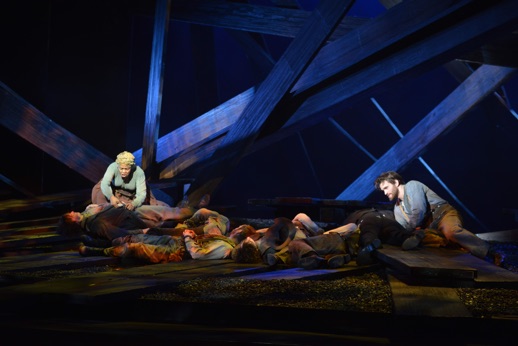
So, why? Why has the sense of how to dramatize a story for the stage become rare? Why do mature composers with no operatic experience or even in many cases much knowledge of the repertory get these commissions when one hears of and sometimes sees new work that actually lands effectively? Is it because grant getting, donor pulling strategies involve the promise to commission “new work”—no matter how inept?
Three recent works offer hope, although they are all on a smaller scale, are shorter and less pretentious. Dog Days, Yardbird (presented by Opera Philadelphia, to be given soon at the Apollo Theater in Manhattan) and Written on Skin are far more powerful works in what seems to me the right direction.
The young and gifted Matthew Aucoin may have had only a modest success with Crossing but he had all the right ideas and is young enough to learn what will and won’t work for him. Nico Muhly is also learning the right way to find what sings in him and get it on the stage, whether or not his work as yet has a completely persuasive impact. And I am sure there are others. But is anyone really interested and if they are, in what numbers?
As for Cold Mountain, those who can make the trip and are possessed of enough patience will find Mr. Ott worth seeing, and—some things probably having settled down from opening night—may find the music more compelling than I did.
Photographs by Kelly & Massa for Opera Philadelphia














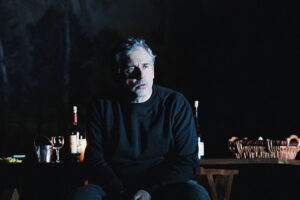
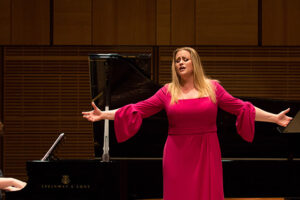
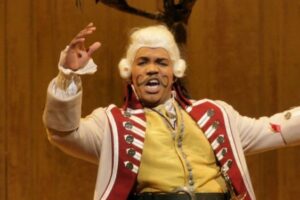
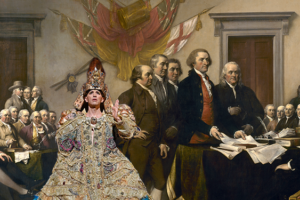





Comments